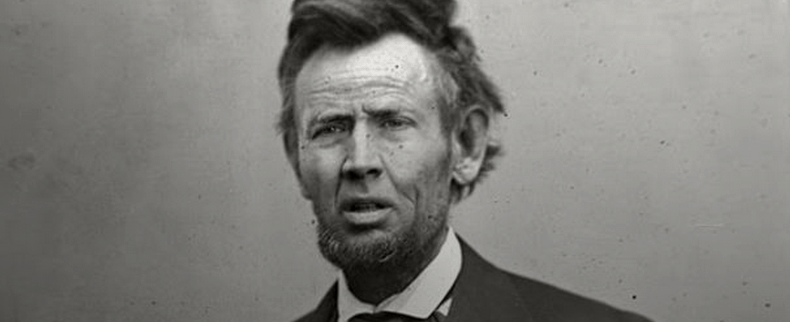
Let’s face it: Evangelism can be scary.
Publicly sharing your innermost beliefs can be difficult (though many Christians are currently doing a pretty good job). It requires being honest and vulnerable about your faith journey, and it can be emotionally, intellectually and spiritually exhausting.
There are many reasons Christians don’t publicly talk about their faith, and when we’re in the situation, they can seem valid. But when we step back and really examine the bigger picture and our ultimate purpose here on earth, we see that these excuses don’t really hold up.
We Fear Controversy
Talking about faith is similar to discussing politics—it can be very controversial, divisive and socially awkward. To avoid this, many Christians simply remain silent.
A person’s spirituality is often considered private and personal, and discussions are usually avoided at all costs—especially with those who don’t share similar beliefs and worldviews.
Additionally, most of us have experienced those awkward moments when we’ve been approached and confronted publicly in an attempt to convert us, get us buy something or talk us into donating to a certain cause. These tactics are often embarrassing, awkward and unsettling—we don’t want to be those people.
In our current cultural climate, comfort trumps controversy, and we’ll do whatever it takes to avoid embarrassment, conflict and unwanted attention. We definitely don’t want to be the source and cause of such pain. Therefore, personal evangelism has quietly become much more subdued and passive—sometimes to the point of being nonexistent.
Historically, the Church has done terrible things in the name of evangelism, and we should be wary of those who present the Gospel in order to promote hidden agendas. But we can become so worried about being offensive that we avoid presenting the Gospel altogether. We should lovingly and gracefully share the news of Jesus without using manipulating forms of fear, humiliation, guilt and judgment.
We’re Ashamed
In a society that revolves around logic, science and concrete data, and within a world that values wealth, power and fame, it’s often absurd to promote such a contradictory faith—it doesn’t make sense!
It’s difficult for many Christians to publicly admit to beliefs that center upon biblical accounts that are filled with amazing miracles and unexplainable phenomena, a supernatural God and the fact that Jesus died and rose again.
Additionally, many believers don’t want to be associated with those who have misrepresented Christ’s name: Westboro Baptist, crazy televangelists, false prophet and con artists who have dragged Christ’s name through the mud.
The reality is that many Christians are ashamed of themselves—their own communities. They don’t want to be connected with the horrific actions, non-actions, thoughts, communications and sins that Christians have personally and corporately committed against the world around them. One way to separate from this sense of dissatisfaction is to avoid publicly identifying as a Christian—abandoning evangelism altogether.
But the only way to show the true nature of Christ and of Christians is to demonstrate and spread His love. If we’re ashamed to admit that we’re Christians (Romans 1:16, Timothy 1:8), how will people ever the good news?
We’re Afraid We Don’t Know Enough
Many people believe in God but aren’t exactly sure why. Talking about God with others can quickly devolve into complex discussions filled with theology, philosophy and doctrines—numerous Christians are unprepared to present (and defend) their faith in tangible ways.
In-depth teachings, exegetical study and apologetics are often reserved for those who attend Academic Institutions instead of churches, and lay parishioners are becoming increasingly ignorant related to basic Biblical knowledge, church history and fundamental Christian dogma.
By becoming insular and inactive, we assume that we’re playing it safe by avoiding all the possibilities of doing something harmful—by not doing anything at all. So we avoid talking, listening, thinking, interacting, dialoguing, living and loving.
But if we’re afraid to learn and make mistakes and engage with those around us, we’re failing to be ambassadors of Christ—those who embrace humanity and creation, seeking to sacrificially serve, help, heal, give and love at all costs.
We Don’t Really Care
We’ve become preoccupied, and our lives are filled with entertainment, work and a litany of tasks and technological distractions that take up most of our time. We leave little room in our lives for evangelistic ministry, and when there is time, we don’t care enough to take advantage of it.
Evangelism and sharing our faith testimonies is no longer prioritized within modern evangelical circles. Instead, we’ve focused on growing ourselves through spiritual formation and discipleship—surviving our secular culture and avoiding burnout, often at the expense of the world around us.
Christians sometimes make the mistake of thinking: “God will do all the work anyways, so why even bother?” And while we admit to ourselves the reality of heaven and hell, we rarely take the concepts seriously enough to share them with others—we just don’t care.
We’re Taking A “Lifestyle Evangelism” Approach
“We will show them we are Christians by our love” is a common expression Christians use that describes the concept that actions speak louder than words.
We assume that if we “live out the Gospel” through our lives that we’ll never have to actually verbalize our beliefs and put them into words.
Unfortunately, telling the difference between non-Christians and Christians is not as easy as we make it out to be. Traits such as kindness, honesty, generosity, humility, truthfulness and general goodness are not exclusive to Christians alone. Contrarily, followers of Christ often are often sinful and guilty of making horrible mistakes—just like everyone else—so how can we set ourselves apart?
We do many things in order to avoid direct evangelism: we give to charities, we anonymously donate to causes, we pray, we occasionally help out others, and we randomly leave tracts in public places—but none of these can replace directly talking to others about Jesus.
We must bravely proclaim the Gospel of Christ. There’s no easy way around it. It will be messy, hard, and embarrassing—but it’s essential to maturing in your faith and fulfilling the Great Commission (Matthew 28:18-20).






















